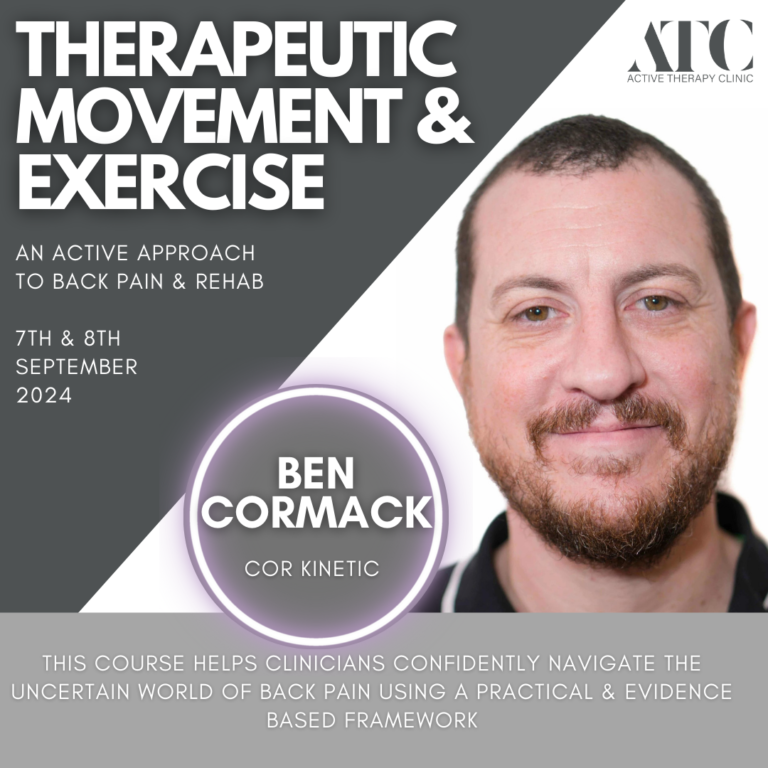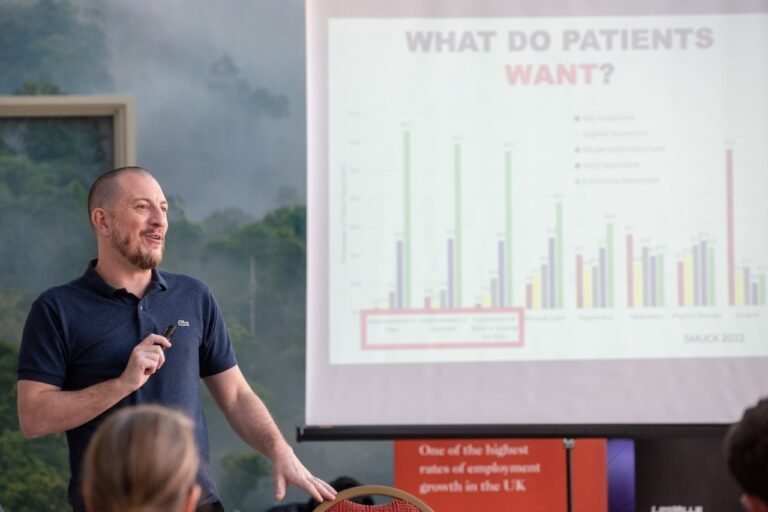Professional Development
All our therapists make an effort to continually update their skills and knowledge. Regularly participating in professional development activities allows us to continue to learn and develop throughout our careers. This is essential in order to maintain high levels of competence and to enable us to competently expand our scope of practice. By doing this we benefit ourselves, our service and our service user.
We are also delighted to host courses which are open to other professionals to attend. Find details below.

OUTLINE
Modern clinical practice requires clinicians to bring together many diverse elements from a wide range of areas. This can often be confusing, overwhelming and leaving many feeling unprepared by previous education. professional development
This course looks to bring together these elements in a cohesive and evidence based framework that gives clinical reasoning skills to reduce the confusion and burden that is often present. This allows both new grad and experienced clinicians to be more confident, relaxed and ultimately more prepared for this challenge! professional development
We move away from the biomedical model, that has failed many patients, to a more comprehensive Biopsychosocial approach. This course incorporates modern pain science, psychology, communication skills, exercise prescription and movement and motor learning principles to cover all the bases you need for a patient focused & active approach to rehabilitation. There are many interactive problem-solving tasks from group discussions, to small group case studies to practical movement-based task so that you can actually ‘feel’ what your patient will feel.
Be prepared to discuss, move & maybe even have your biases challenged. This is not about a bunch of exercises that you could have just watched on YouTube, its understanding research better, improving communication, up skilling clinical reasoning & trimming away the unnecessary fluff. It goes way beyond just sets, reps & technique that often don’t apply well to treating people with pain anyway
This course has been taught on 5 continents, 30 + countries and 100’s of clinicians & coaches with a whole bunch of discussions, laughs and movement experiences.
What you will get
- A brand new streamlined pain science approach. Lose the complex neuroscience explanations
- Psychologically informed communication & interviewing strategies to help people ‘make sense’ of painful problems
- BPS exercise ‘prescription’ model that moves beyond just the tissue
- An ability to confidently navigate uncertainty in diagnosis & treatment
- Appreciate movement variability and dynamic systems theory to forget “good/bad” movement/exercise models
- Gain comprehensive back pain knowledge that will help you understand, explain, assess & treat back pain from a truly evidence-based position
- Learn an exercise dosing model that redefines pain & exercise
- Simple ready to use strategies for common back pain problems
Who is it for?
- Anyone with a passion to learn & help painful problems
- Those open to new ideas and concepts and the latest research
Who is it not for?
- Those expecting simple protocols or quick fixes
- Unwilling to engage in learning
- Not looking to update their current knowledge & paradigm
Content
- 40% Lecture
- 30% Practical
- 15% Discussion
- 15% Case study
professional development

COURSE SCHEDULE
Day 1
9am – Intro and key course concepts & intro to understanding EBP
10am – Pain science & the BPS model in 2024
10.45am – Break
11am – The clinical conversation. Improving communication & subjective Ax
11.30 – Pain & exercise. How does it help/not help?
12.30pm – Lunch
1.30pm – What do you want exercise/movement to do? Clinical reasoning tools for clinic
2.15pm – Practical movement class – Creating a movement experience
3pm – Break
3.15pm – Exercise dosing – the secret to success
4pm – Movement snacks
5pm – Finish
Day 2
Day 2 will have shorter breaks and lunch to allow you to get home earlier!
9am – Understanding lower back pain
10.30am – Serious (red flags), specific & non specific back pain. Whats the difference?
11am – Break
11.15am – Back pain assessment workshop (Subj & obj)
12.30am – Lunch
1pm – Treatment (Advice & education and exercise workshop)
2pm – Exercise for back pain
3pm – Close
